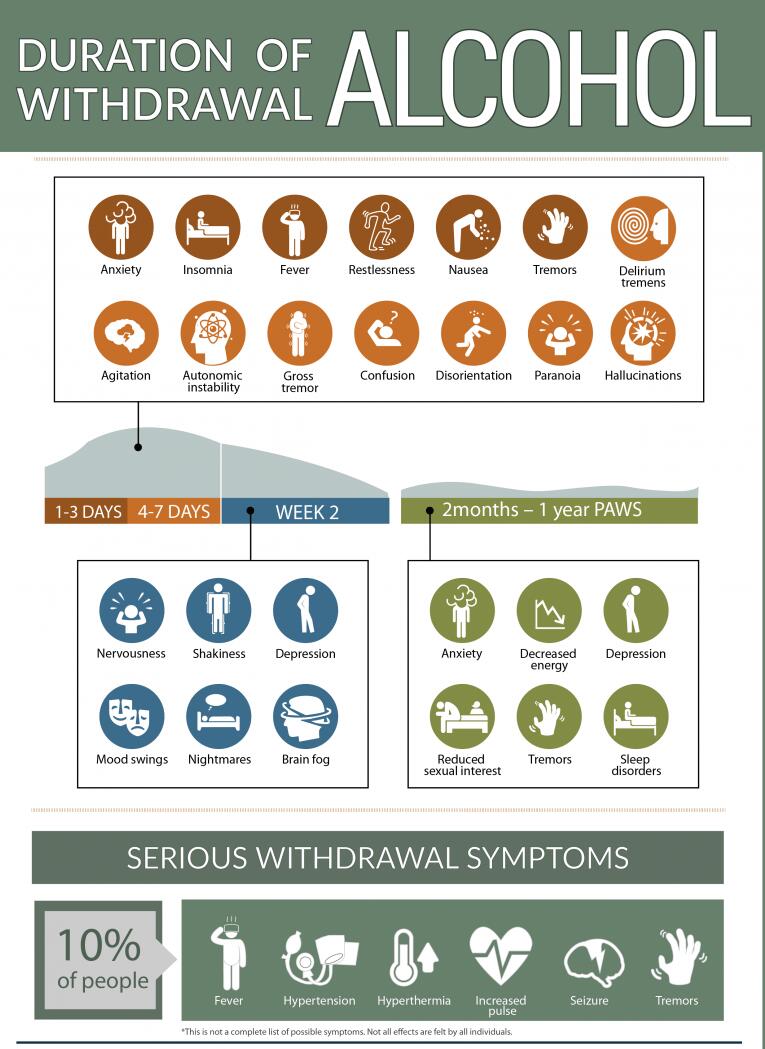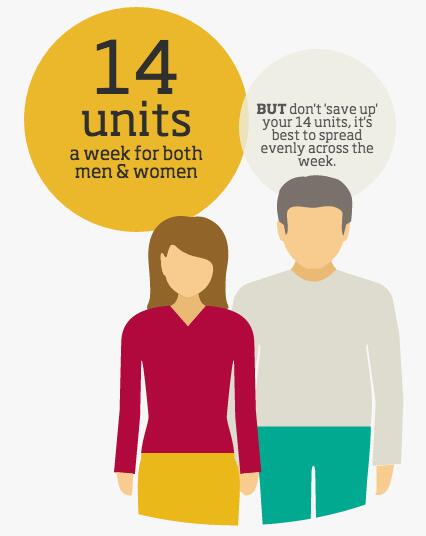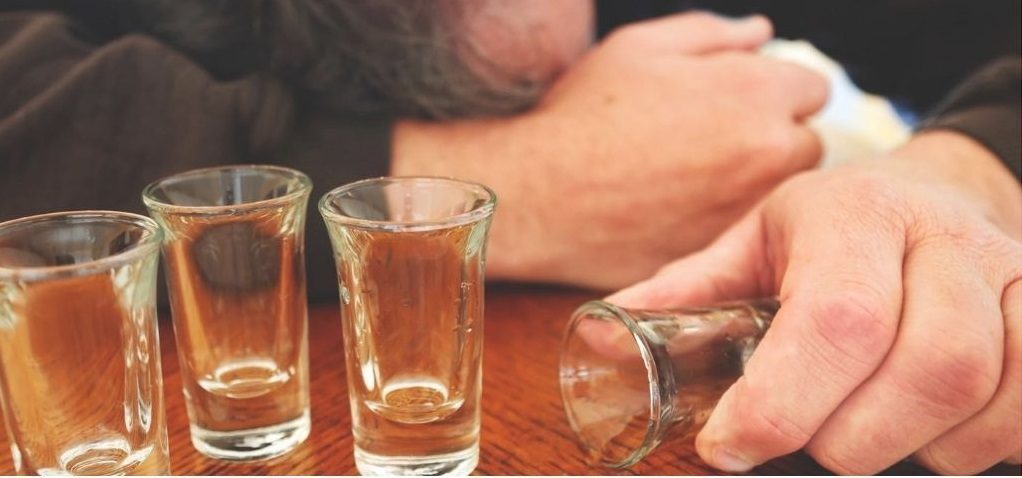Alcohol dependence, also known as alcohol dependence syndrome, is a type of alcohol use disorder that can range from mild to severe, depending on the level of dependence. Recognising the signs of alcohol dependence early is crucial for accessing appropriate treatment.
Being dependent on alcohol is a very serious condition. Simply put, it means your body and brain cannot function properly without alcohol. This dependence on alcohol can vary in severity, and any abuse can carry permanent consequences for your well-being and health.
Recently, a new government poll conducted on 9,000 adults in the UK revealed that as many as 1 in 5 adults are drinking above the Chief Medical Officers’ safe drinking guidelines. This is alarming, considering the damage that alcohol can cause to both physical and mental health when consumed at harmful levels.
Even more concerning are the statistics published by Public Health England (PHE) that show England currently has an estimated 586,780 alcohol-dependent drinkers, of which only a minute 18% are receiving treatment.
Most people know that drinking excessively can lead to certain alcohol-related illnesses, but did you know that alcohol is also linked to several types of cancer and is very bad for your mental health?
Understanding precisely what alcohol dependence is and the symptoms and signs of alcoholism can help you to access the correct alcohol addiction treatment. This is vital to both your short-term and long-term well-being.
Alcohol Dependence Definition
According to NICE, (National Institute for Healthcare and Excellence), alcohol dependency is characterised by craving, tolerance, preoccupation and continuation despite harmful consequences. From a clinical perspective, a diagnosis of alcohol dependency is given when an individual requires alcohol to function. Again this can range from mild to moderate to severe.
In the addiction treatment field, it is recognised that you can be physically and/or psychologically dependent on alcohol. In 2013, where both physical and psychological dependence on alcohol is identified, the DSM-5 reclassified the condition as alcohol use disorder, more commonly referred to as alcoholism.
Alcohol Abuse or Alcohol Dependence?
How do you know if you are alcohol dependent? If you are wondering if you are dependent, a professional diagnosis will assist you in seeking the correct treatment.
The terms alcohol abuse and alcohol dependence are often used in place of each other when in fact, medically, there is a clear difference between the two. Both suggest the serious abuse of alcohol likely to cause real harm to your health and well-being. But while somebody with alcohol abuse problems usually manages to carry on their lives with some appearance of normalcy, addiction kicks in, and then alcohol takes over.
In 1992 The World Health Organisation (WHO) released a set of criteria for diagnosing dependency syndrome. This serves as a useful guide and is referred to by medical professionals worldwide.
A diagnosis of alcohol dependency syndrome is made where three or more of the following six criteria have been present together during the preceding 12 months.
The 6 Signs of Alcohol Dependence Syndrome:
- A strong desire or sense of compulsion to drink- intense Cravings for alcohol, alcohol withdrawal sweating
- Difficulties in moderating intake of alcohol in terms of its onset, termination, or levels of use
- A physical withdrawal state if/when use is reduced or stopped completely. This is evidenced by alcohol withdrawal syndrome. Use of alcohol with the intention of avoiding the onset of alcohol withdrawal symptoms
- Evidence of tolerance to alcohol – The need to increase the amount consumed over a period of time to gain the desired effect and to avoid withdrawal symptoms. Drinking and being tolerant of alcohol to such an extent that the same amount would cause serious harm or even kill an individual who drinks within the recommended safety guidelines or does not drink at all.
- Progressive neglect of self-care, family, work, friends, finances and interests due to drinking and recovery demanding more and more time.
- Continuation of drinking despite negative and/or harmful consequences. This may include the loss of a relationship, or a job, a DUI, depressive moods and anxiety, harm to health, inability to function normally due to intoxication etc.
If you are still in any doubt or want professional advice on what to do if you are dependent, call us now on 02072052845. We are here to support you or your loved one in accessing the best alcohol treatment available in the UK.
Physical Signs of Alcohol Dependence Syndrome
Drinking to harmful levels is undoubtedly bad for your health, but being dependent increases the risks of irreversible harm.
To put into context just how dangerous alcohol is for your health, it is estimated that alcohol-related conditions cost the NHS an average of £3.5 Billion a year. That equates to 3.6% of the total NHS annual budget.
Risks associated with dependency are increased with the more you drink and the longer you drink; these risks include:
- Development of health conditions, including high blood pressure, heart disease, stroke, liver disease, and digestive problems
- Cirrhosis of the liver
- Cancer of the breast, mouth, throat, oesophagus, liver and colon
- Risk of developing Wernicke’s Korsakoff syndrome
- Increased risk of damage to short-term memory and development of dementia
- Increased risk of alcohol-related brain damage
- Development of long-term mental health problems, including depression and anxiety
- Increased risk of suicide
- Development of alcoholism – a lifelong brain condition that requires ongoing treatment
- Increased risk of fall, accident or injury due to being intoxicated
- Poor decision-making and increased risk-taking
- Alcohol causes problems socially, financially and with family
- Development of dangerous withdrawal symptoms, including alcoholic seizures and delirium tremens, which can ultimately result in death
If you have a dependence on alcohol, it is vital that you access the correct medical help to stop you from drinking. Stopping alcohol abruptly or too quickly can lead to severe health complications that can become life-threatening.
For more information on our professional inpatient detox programmes, call 02072052845.
Alcohol Dependence Syndrome Symptoms

Alcohol dependency means that your brain has become accustomed to functioning with a certain amount of alcohol and has chemically changed and altered to accommodate it.
As a result, one of the main symptoms of dependency is strong cravings for alcohol, even when you really do not want to drink. These cravings can be so overwhelming that they are compulsive. This is the brain sending out signals that it needs alcohol to prevent withdrawal from developing.
Other symptoms of dependence include:
- Tremors in the morning after drinking, especially evident in the hands
- Alcohol-induced illnesses
- Short-term memory loss whilst intoxicated (blackouts)
- Tolerance to alcohol, you have had to increase your alcohol intake over the course of time
- Feeling anxious, restless and panicky without a drink
- Inability to control the amount you drink once you have started
- Preoccupied with thoughts of getting alcohol and planning where and when to drink it
- Covering up the extent of your drinking from others as you fear they will be shocked or judge you
- Unable to envisage a life without alcohol in it
- Placing alcohol above significant others and important responsibilities
- Feeling anxious if you are running low on supplies of alcohol
- Doing things you would not normally do when sober and later regret
- Complete inability to leave alcohol alone completely
- Attempts to moderate or stop drinking fail
Alcohol dependence can and does kill. In 2018 a staggering 7,551 people died from an alcohol-specific death in the UK. This is the highest number of deaths attributed to alcohol since records first began in 2007.

Who is at Risk of Alcohol Dependency?
Anyone who frequently drinks, i.e. daily for a prolonged period of time, can become dependent physically. It does not have to even be in large quantities as such, and you can be mildly alcohol dependent. Obviously, the more you drink, the more serious the condition is considered.

The Chief Medical Officers safe drinking guidelines are the same for both men and women
Certain people are more predisposed to developing a dependence on alcohol. Genetic markers, mental health and environmental factors contribute to addiction development.
Some individuals may only drink in the evenings, yet they are dependent on alcohol to help them to relax or fall asleep. Others, at the more severe end of the alcohol-dependent spectrum, will continually top up their alcohol levels throughout the day and night; this becomes necessary to avoid acute alcohol withdrawal.
If you go without a drink and experience withdrawal symptoms that are relieved by drinking more alcohol, then you will need medical help in the form of medical detox to help you stop drinking safely. Alcohol is one of the most, if not THE most, dangerous drugs to withdraw from.
Alcohol Detox
Alcohol dependence can be treated successfully and safely with medical detox. This should only be conducted by medical professionals within a clinical environment such as a detox clinic, hospital or rehab centre.
Following a careful assessment by a doctor, you will be prescribed a pharmaceutical sedative medication that will act as a substitute for the alcohol. You will then be weaned off this medication over a period of days. Detoxes usually take 1 to 2 weeks to complete, depending on the levels of alcohol involved and the individual’s health.
Whilst undergoing detox, if carried out within one of our CQC-registered alcohol detox clinics, you will be medically monitored continuously and provided with therapeutic support. Clinically, undergoing a full medical detox is the safest way to stop alcohol, where dependency has been identified.
Alcohol and Drugs Combined
Having a dependency on both alcohol and drugs, even prescription drugs, is considered one of the most dangerous conditions to withdraw from.
We provide expert treatment for all addictions, including medical detox, for when there is more than one substance involved. In our experience, to avoid relapse, it is vital that all substance dependencies are treated simultaneously. This must be managed very carefully, both medically and therapeutically, to avoid life-threatening complications from developing.
Drug and alcohol detoxes need not be painful or uncomfortable. We will do everything possible to ensure that you are adequately medicated and as comfortable as possible during the entire detox process.
Are You Drinking Too Much?
Take our quick and simple alcohol dependence test to understand more about the impact of your drinking. Find out whether your relationship with alcohol is right or you’re overdoing it and need to take action.
Alcohol Dependence Treatment
Dependence, a sign of alcohol addiction, is commonly referred to as alcoholism. Alcoholism is a condition that affects the brain, and whilst it cannot be cured, it can be successfully treated using a combination of medication and evidence-based therapy treatments.
Whether you or a loved one are struggling with alcoholism, binge drinking or drinking to harmful levels – if you are unable to control your drinking and are suffering negative consequences; as a result, it is important that you seek professional help without delay. Alcohol use disorders only ever get progressively worse without treatment.
Our rehabilitation programmes consist of the latest in proven alcohol addiction treatments; all are delivered by qualified professionals within a safe and secure inpatient rehab setting. Our treatments and treatment plans are tailored to our patient’s individual treatment needs. Furthermore, we also provide free support for the family and a comprehensive aftercare programme to help safeguard against alcoholic relapse.
We are a leading authority on alcohol detox and alcohol rehab – Contact us today to arrange your FREE addiction triage assessment at 02072052845
Sources and references:
- Public Health England PHE https://publichealthmatters.blog.gov.uk/2018/09/10/why-public-health-england-is-working-with-drinkaware-to-reduce-the-harms-of-alcohol/
- NICE Alcohol Use Disorders https://www.nice.org.uk/guidance/cg115/chapter/introduction
- Alcohol use disorder reclassified “Alcohol Use Disorder: A Comparison Between DSM–IV and DSM–5”. November 2013. Retrieved 9 May 2015. https://www.nice.org.uk/guidance/cg115/evidence/full-guideline-136423405
- World Health Organisation (WHO) https://www.who.int/substance_abuse/terminology/definition1/en/
- Institute of Alcohol Studies http://www.ias.org.uk/Alcohol-knowledge-centre/Economic-impacts/Factsheets/Estimates-of-the-cost-of-alcohol.aspx
- International Agency for Research on Cancer. Personal Habits and Indoor Combustions: A Review of Human Carcinogens, Volume 100E 2012. Available from: http://monographs.iarc.fr/ENG/Monographs/vol100E/index.phpexternal icon

John has dedicated his life to finding treatment for those with addictions and supporting their families.
A business manager for 20 years in the construction industry John’s own experience of addiction led him to found his own rehab centre group in Scotland.
John qualified as a counsellor for people with substance misuse during his time working as a therapist and manager for the foundation. He also trained as an interventionist and appeared on ITV as a consultant helping families impacted by addiction.
He has helped thousands of people in recovery and his knowledge of the rehabilitations process and the addiction experience is unparalleled.


